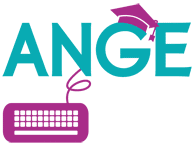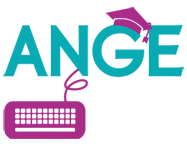Short term training – Craiova, Romania
Digital Education : Public policies, actors and challenges
November 12th 2019
University of Craiova – UCV
13 Boulevard A.I. Cuza, 200585 Craiova, Dolj, Ro
Central building, Room 443B
9:30 am -17:00 pm
—
Since the beginning of the twenty-first century, the educational field, programs and teaching methods have been reconfigured in depth by digital uses (Beetham and Sharpe, 2013, Tessier, 2019). The impact of digital technologies is visible at different levels, from European, national, regional to institutional projects. This integration of digital is most generally envisaged in three ways: in the creation of innovative learning environments (the Creative Classrooms – Bocconi, 2012, 2013), in the implementation of new pedagogies or the development of innovative educational projects (Fullan, 2013, Laurillard, 2012, Selinger and Hamilton, 2017) and in the development of curricula responding to new professionalization needs, in societies innervated by digital technology (Punie and Cabrera, 2005)
In this context, we note in particular a willingness of the European Commission to support the implementation of transnational educational projects including the use of digital. This concern can be seen in various programs such as: eLearning Action Plan, Europe 2020 Strategy, the Agenda for New Skills and Jobs and the Renewed EU Agenda for Higher Education. However, important disparities remain, in terms of objectives or needs, between the countries of the European Union, which complicates the sharing and even more so the transferability of national experiences. In addition, some local issues are difficult to generalize (whether it concerns issues related to multiculturalism, plurilingualism, immigration or poverty issues). Finally, educational policies deployed at national and even lower levels are sometimes difficult to accommodate with participation in a European project.
National, regional or local educational programs respond to particular challenges that are, by definition, prioritized by local actors. For example, the Walloon Digital School program is a regional project aimed at reducing the equipment gap between schools. The Teaching 2.0 – Media Literacy in the Classroom project in the Berlin-Brandenburg region of Germany supports the introduction of digital literacy courses for trainee teachers. The ICT in education certification program allows schools in the Spanish region of Castilla y León to obtain a label certifying that the school implements good digital practices. Another example is the Italian Strategy for Digital School program, which supported the setting up of digital infrastructures and their use in schools across the country. European educational programs promote exchanges and meetings. But one can ask the question of the transferability of practices from one country to another, from one institution to another, because of the needs, skills and means each time specific.
As part of this study day, participants are invited to analyze and compare experiences of implementation of an educational project including digital involving the articulation of European, national, regional or local programs. In particular, we will try to evaluate to what extent the European educational actors converge in the direction of the strategic priorities that are posed by the European Commission or if they are rather impeded because of their obligation to answer local problems.
This day of study is organized by the Faculty of Social Sciences and the Department for the Training of Teaching Staff, the Doctoral School of the Faculty of Letters “Alexandru Piru” of the University of Craiova (Romania), the Faculty of Arts Education of the Catholic Institute of Paris (France) and the Faculty of Education of the University of Salamanca (Spain). It is part of a research program deployed within the Erasmus + ANGE project (Digital Anchoring in Institutional Governance) in which these three academic institutions collaborate.
The event represents an opportunity to share knowledge about the implementation of European education policies, taking into account the recommendations made at the level of the European Commission and the place of national, regional or local policies in the development of digital educational projects. At the end of the day, the participants are invited to propose an article that will be published in a thematic issue of the Sociology University Review (Revista Universitara de Sociologie) to be published in December 2019.


